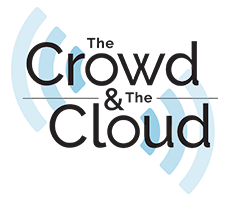
Newsletter
Sign up and stay in-the-know about The Crowd & The Cloud and the world of citizen science.


My name is Kristy Murray, and I’m an Associate Professor at the Baylor College of Medicine.
You spent a number of years at the Centers for Disease Control, and you're what some people refer to as a ‘disease detective’. Tell us a little about what you do and how you got that moniker?
Starting at the CDC, I joined the Epidemic Intelligence Service. It's a two year applied epidemiology training program, essentially looking at how diseases impact populations as a whole. I spent two years doing mostly outbreak investigations. That drove the rest of my career to this point. I was at CDC for almost six years when I came to Texas in 2002. A lot of the experience I'd had there I applied to my current job. It's a little different. I'm not jumping at every outbreak that happens. We have much longer term research type studies, but it's still understanding these diseases and how they impact people.
For instance, one outbreak that I'm working on right now has been going on for almost 20 years. It's in the sugar cane fields of Nicaragua, and it has killed a lot of people so far. At this point no one had known at all what was going on, what was causing the disease. A lot of different types of theories out there. That's how I got roped in, because that's what I do. I take the unknowns and try to understand what they are and how it impacts these populations. It's detective work. It's taking all the pieces of a puzzle and pulling them together in different ways to be able to figure out what can we do to stop it.

How do you apply what you learned at the CDC to your current work?
I'm very different, I'm a veterinarian. When you look at emerging infectious diseases, 75 percent of them are zoonotic (C&C: meaning, originating in animals.) There's some animal or environmental component to them that's creating the disease in a population. Actually having that type of knowledge is very helpful in understanding how these people are getting sick and what type of pathogens could be making people sick. I brought that information with me, but also the training that I had. I learned to relate to health departments, people who are in the field all the time, on the ground, being able to communicate with them and understand what's going on, but doing it from a more scientific perspective.
What role does citizen science play in acquiring data?
Oh, a huge, huge role. Either with identifying ways to get that data or/and to accumulate that data, but then also to turn around and give that data back to the citizens so that they can actually make changes to do something about it. I think it's always really important to communicate our science.
Not just in scientific journals where less than one percent of the population would pick it up and actually read the article, but really do more to communicate what we do and what we find to everyone so they can understand how to protect themselves, protect their family members. We learn about the diseases and how it affects populations, but especially how people put themselves at risk for getting these diseases. I feel like there's so much that can be done when we can turn it around to them and make a difference.
